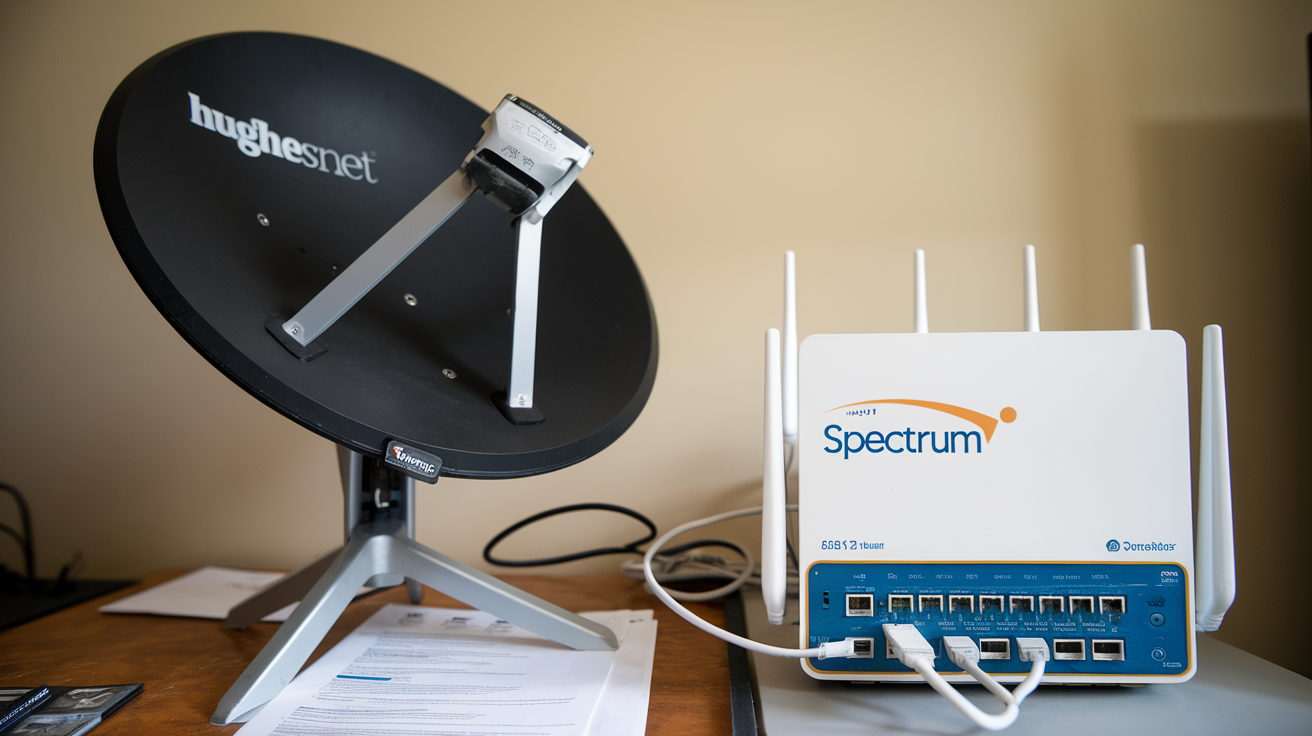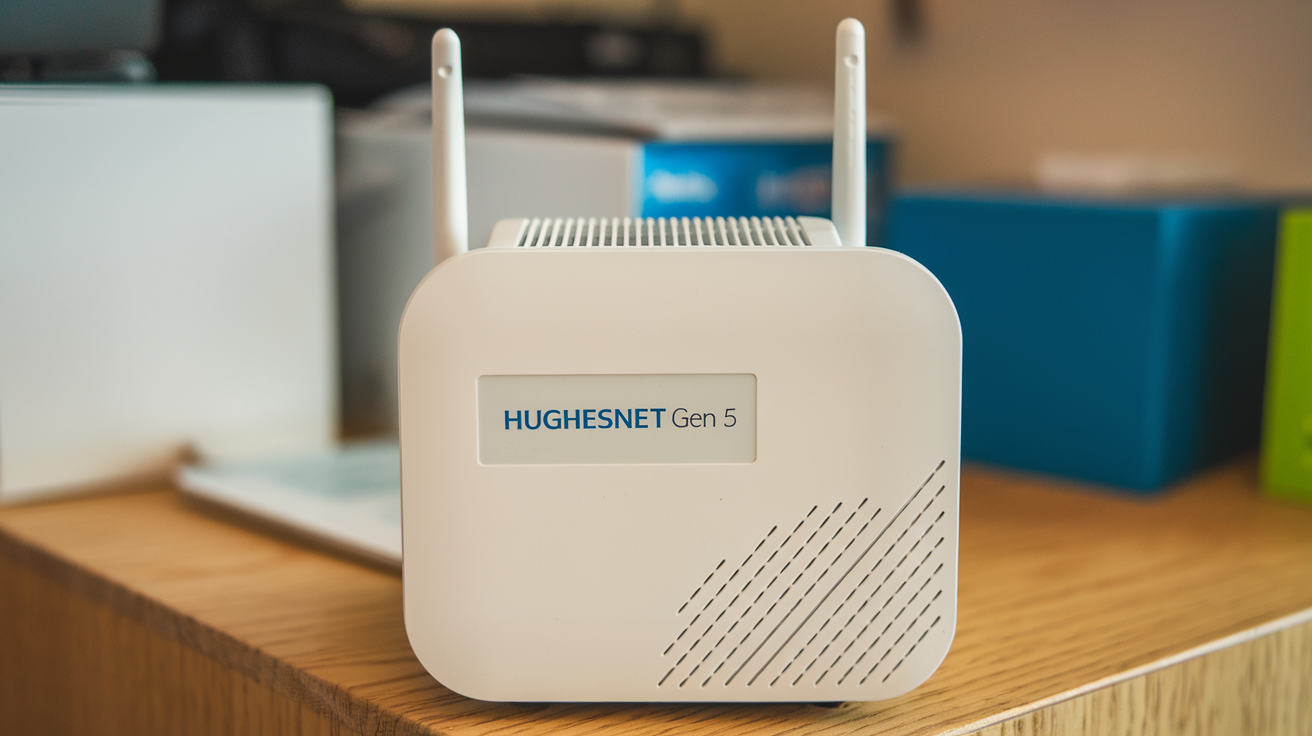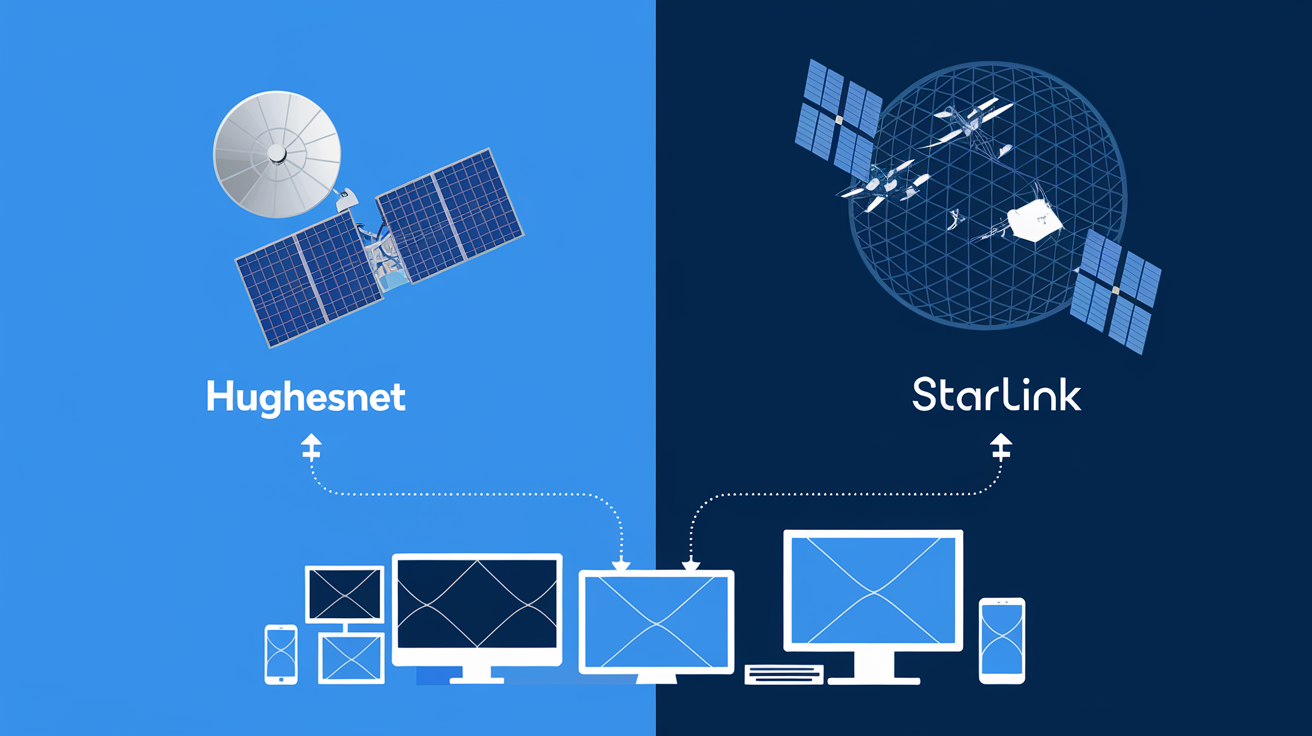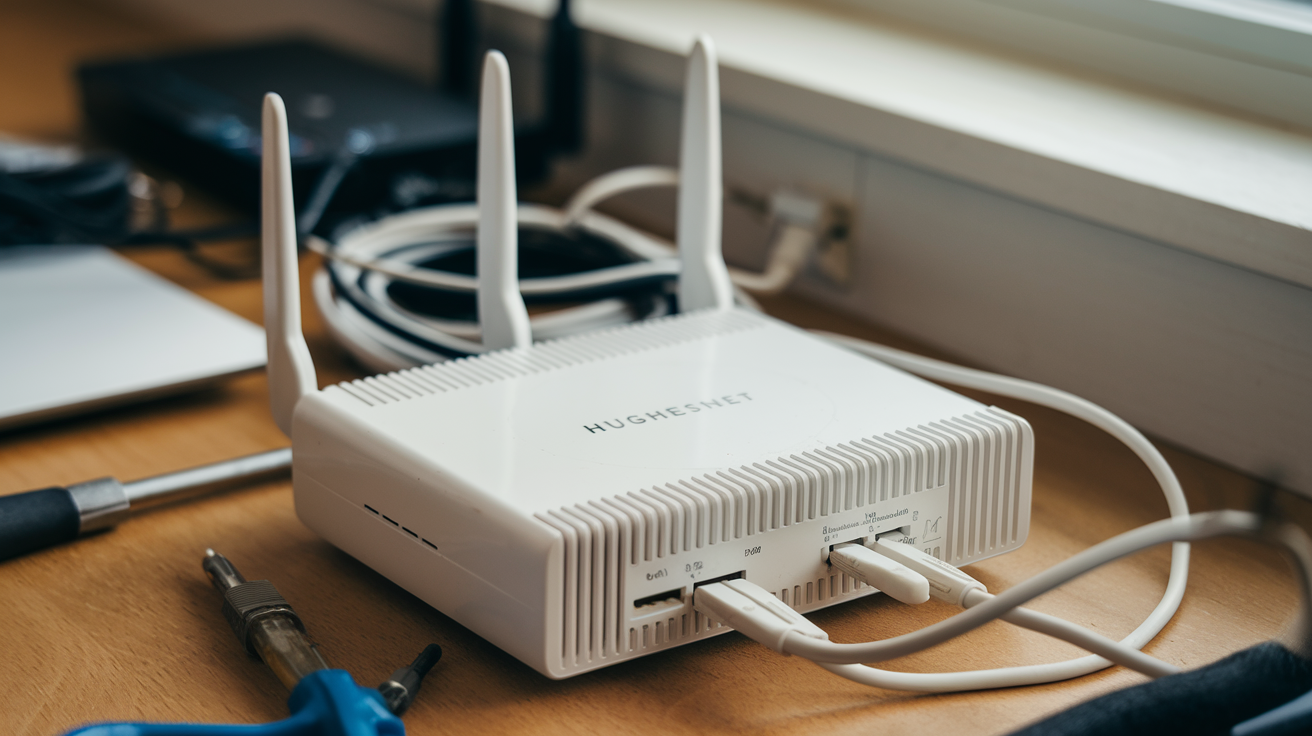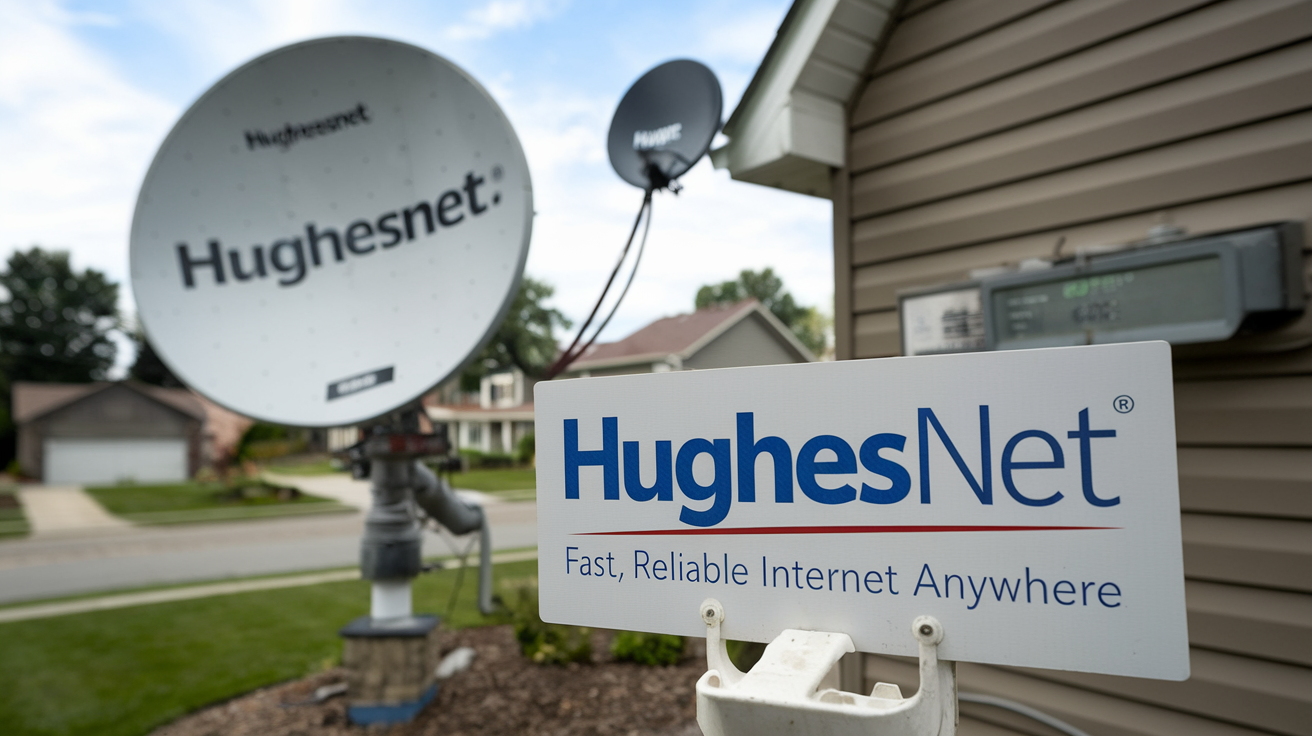-
Posted on: 08 Aug 2024

-
Streaming has become increasingly common with more and more consumers no longer using Cable and satellite TV subscriptions. As good as this may sound, the quality of streaming depends on the consistency and speed of the internet connection. This raises the inevitable question that many other rural Americans have been asking – is HughesNet fast enough to stream?
What is HughesNet?
HughesNet is one of the premier satellite internet service providers that can provide internet services to customers who cannot access cable and fiber internet. Satellite functions by sending signals to satellites within space which retransmissions the signal down to small satellite dishes installed at the consumer premises.
Since the signal has to cover a very large area, the rates are often considerably lower than with a wired connection. However, satellite bandwidth has improved through technological advancements in the recent past. HughesNet has a service offering that includes download speeds of up to 25 Mbps on some of the packages.
Bandwidth Needed for Streaming
For streaming high-definition content like movies, series, or any other videos from streaming services such as Netflix, Hulu, Disney+, etc, a minimum bandwidth of 5 Mbps is required but recommended speeds are above 10 Mbps. For a household with a lot of individuals streaming at once, the recommended broadband speed is 25 Mbps and above.
The catch is that satellite internet providers advertise the maximum or what is known as burst speeds. This means the amount of work that they can do at one time to the extent of their capacity but for short times. This means that while using the network you may experience slower connection speeds than the ones you signed up for, especially when multiple users are connected.
HughesNet Data Caps
HughesNet has restrictive plans for its consumers and none of its plans offer unrestricted usage of the internet. The bundled carrying high-speed data allowance per month is as low as 10 GB for the basic plan and as high as 50 GB for the premium plan. If you go beyond the fair usage limit in a billing month, your speeds will be reduced to a range of 1 – 3 Mbps for the balance of the billing month.
To download an HD movie or to stream HD videos for an hour may consume up to 3 GB. That means quick streaming alone will use up a lot of HughesNet data allowance in a short time.
Can HughesNet Be Used to Stream?
While HughesNet has enough bandwidth to do streaming of videos, this does not mean that it can provide reliable streaming services. There are a few major downsides to streaming with satellite internet:
- Limited burst speeds – The service provider offers 25 Mbps which are not actual but rather peak bursts. As things stand, you will probably clock 5-15Mbps on average, thus making high-quality HD streaming a hassle.
- Limited data allowance – They offer a minimal bandwidth range of 10GB to 50GB per month before their speed is reduced and you are charged for over usage when streaming.
- High latency - Satellite Internet connection is very slow due to the long distance that signals have to cover before reaching the end user, thus, it takes a long time to load videos and images during streaming.
- Congestion during peak hours – Similar to cable internet, satellite bandwidth is finite and is used in portions. So when neighbors are also streaming in the evenings, available bandwidth decreases significantly hence, available bandwidth indicates when neighbors are streaming.
- Weather disturbances - This is where the effect of climate changes on the signal is felt whereby a heavy downpour, a snowstorm, or even a storm interrupts the signal transmission.
HughesNet might be acceptable for light streaming during off-peak usage times of the day; however, the fluctuating speed, high latency, continuous buffering issues, and limited data allowances make it a no-go for a household where multiple members stream content.
Alternatives to HughesNet
Rather than dealing with HughesNet's limitations, you may want to explore some other options for rural internet access:
- Cellular data – A wireless router, and a data SIM card from a carrier like Verizon or T-Mobile should be relatively fast enough to stream in some rural areas with good LTE signal strength.
- Fixed Wireless – Some service providers present an antenna-based service along with download speeds of around 25-50 Mbps. Availability is limited though.
- Local WISP – More information can be gathered from the internet about the Wireless Internet Service Providers. However, as it will be seen, even some of the smaller WISPs that operate in rural areas can offer stream-capable internet connection speeds.
- Starlink satellite - Starlink plans to provide communication and internet service through satellites, which will have low latency and speeds over 100 Mbps. While the existence and development of the network are still in its infancy, the future outlook remains relatively optimistic.
Although HughesNet indeed provides ‘enough’ speed and data to stream with some of its plans, problems such as bandwidth throttling, congestion, and many more can significantly hinder streaming. Before subscribing and signing up to HughesNet satellite internet, make sure you consider all your options critically. Fixed wireless, cellular data or the new low-orbit satellites that are soon to be available might be ideal for the cord-cutters who stream.
